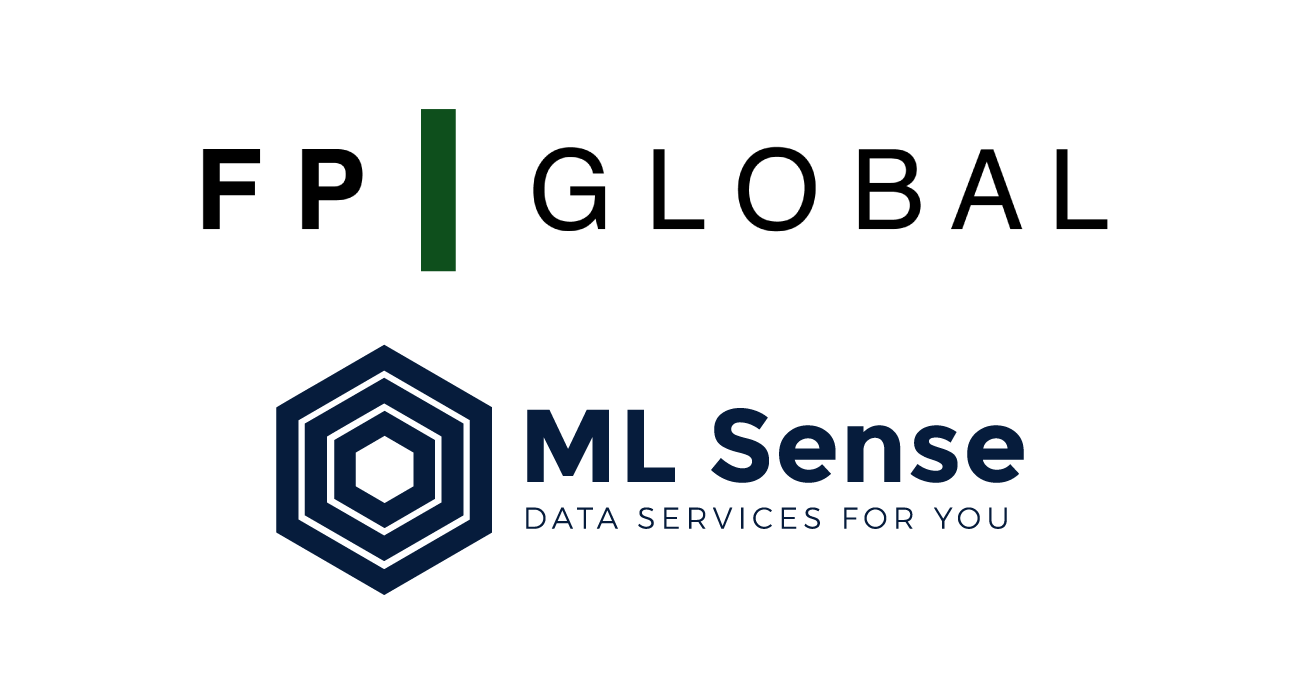Latest Insights
April 26, 2019
Join us in this Funds Partnership Asia special with Qian Jing Jing, Managing Director Asia Pacific at Sanne Group as part of our Women in Funds series. Hear first-hand insights on how she manages cross-cultural teams, the future of Fund Administration, and how she juggles it all as a mother of 2:
1. What’s your career trajectory in a nutshell?
I was originally born in Shanghai, but did my Bachelors in Finance and Masters in Accounting in Dublin. Upon landing my first job as an Auditor in EY, I spent the next four years doing controls-testing for the entire Dublin.
Working at EY definitely equipped me with a solid foundation and it was there that I gained experience and knowledge about funds. However, this was 99% limited to the Hedge Funds sector.
When I came back to Shanghai, China in 2010, I was head-hunted by Sanne Group – a US-based company which was expanding to Asia. The Director of Asia at that time asked me if I was keen to help set up their Shanghai Office, which would essentially made me the second employee in Sanne Asia.
One big reason they wanted to hire me was my unique blend of experiences in Dublin.
I just happened to have the right background in compliance, risk and more importantly, cross-cultural understanding – having lived in both China and Ireland. They needed a bridge between the two cultures and someone they could trust to grow the company together.
To be honest, I didn’t really know exactly why I said “yes”, given that it was the early days of Fund Administration and there was much uncertainty, but I’m very glad that I did!
In 2010, I was mainly responsible for China-based funds. By 2015, I started focusing more on Hong Kong and occasionally Singapore, due to the similar type of clients and structure across both. From 2018 onwards, the pace has been picking up incredibly fast, with lots of ongoing relationship management across the region.
Quite recently, I was involved in setting up our fourth and latest office in Japan and on-boarding its director.
2. How did you go from Hedge Funds to Private Equity (PE)?
Although my understanding of funds were limited to just Hedge Funds prior to joining Sanne, I was more than willing to dive right in and learn about PE on the job.
It was still very lean at the start, as we were growing the company from the ground-up together and acquiring our first few clients in the region. Although I came in as a manager, I was involved in the details of execution, including personally preparing the accounts and financial statements.
Nevertheless, it was through this period that I gained the chance to understand the inner-workings and processes from the ground-up. Looking back, I can see how we had grown together with some of our clients, from project to project. In the first five years, the team grew quite slowly, from just one to ten. But from 2017 onwards, we grew quite exponentially to 22 people as of now.
When I first joined Sanne 8 years ago, the PE market had not really been developed yet, especially in China. However, in recent times, we noticed an increasing number of individuals switching over from Hedge Fund backgrounds, without necessarily having prior experience in PE or accountancy. This is happening rapidly in China, but is also a growing trend in Singapore and Hong Kong.
3. What made you want to enter Fund Administration (Sanne Group) for the last 8+ years?
I did have some opportunities open up in the buy-side, however I felt more inclined towards Fund Administration for a number of reasons.
In Asset Management, the accounting and administration functions are not revenue-driven at all. What’s more, buy-side is increasingly reducing its back-office to focus on investment and deals. If I had joined as an accountant, I would have to oversee all the structures and processes ensure the investor is serviced from start to end, under intense pressure.
This is in contrast to Fund Administration, where accounting is our REVENUE GENERATOR.
When we grow the team together, you are not just lending your technical skills (eg. accounting skills), but you will start to learn critical soft skills such as client relationship management and negotiation. You can’t get that from the buy-side!
Furthermore, you are able to achieve relatively more stable work-life balance as you’d be able to manage timelines in the long-term, administrating transactions based on the instructions from the Asset Manager. Instead, you’d still be challenged, but in a different way, such as managing cross-country teams and ensuring efficiency of processes.
I personally find that fulfilling and I’m confident Fund Administration is a thriving sector that is only going to grow in the near future!
4. What’s a day-in-a-life for you?
In the mornings before work, I will try to spend as much time as possible with my children! I usually make breakfast before sending them to school, so I tend to come in a bit later at around 9:15 or 9:30am.
During lunchbreaks, I make it a point to go to the gym. After so much intense brain activity, I find that exercise helps keep me alert and energised for the rest of the day.
If there is no urgent deadlines, I will leave office around 7:30 or 8:00pm and take about 40 minutes to get home. Once I’m home, I will totally switch off my emails and focus on being present with my kids. By then, so my kids would be preparing to go to bed. I’ll play a game or two with them and maybe a bedtime story. Around 9:30pm when they are in bed, I will use that pocket of time to check my emails again and respond if needed, otherwise I’ll leave it to the morning.
If I’m travelling, my husband then takes on the role of sending them to school and making breakfast. Sometimes, if both of us are unavailable, my parents step in to help as well.
I think the real challenge is when the kids grow up and when they go to primary school – that’s when they will need help with their schoolwork! It’s manageable now because they are still young at age three and five, but once the demands of the education system kicks in, it’s definitely going to be more taxing.
During the weekends, I try to spend all my time with family – be it going to the park or outdoor activities because I realised that quality time cannot be compromised.
So that’s definitely one thing I’m learning – how to switch off and switch on, and give your full attention to what’s at hand.
5. How is the work-life balance in Fund Administration? Would you say that it is better-suited for back-to-work mums compared to buy-side?
While we don’t have the deal pressure as compared to buy-side, but in Fund Administration, there’s a whole new set of challenges.
Right now, as Managing Director, my pressure is ‘How can I lead Asia to grow’?
One of my priorities is constantly staying connected and inspiring very diverse groups of people. I saw a shift in my responsibilities from a hands-on, operations role to one that is more of a driver, change-maker, and leader.
Fund Administration definitely has a good balance – there’s the dynamism of working in a big team across multiple clients and regions, while still maintaining the stability as a service provider. This can be a viable option for back-to-work mums, or for anyone for that matter!
For example, I just interviewed a senior executive from Hong Kong who was switching over from a large buy-side firm. When I asked him why he wanted to join Fund Administration, his response was that he had newly-born twins and he wanted better work-life balance, but still have growth and challenge.
6. When you first entered the fund industry earlier on, were there any prejudices or obstacles you had to overcome as a woman?
The more you step into senior management, it is undeniable that you see a lot of the men! However, I’m quite open to that and haven’t experienced any incidents or cases where there’s been discrimination so far.
Most importantly, I think it’s crucial to just be yourself and not undervalue who you are! It’s not so much about “how should I behave” when I talk to men, but I think when you’re confident in who you are, they naturally respect you.
7. What advantages would women have over men? Do you have any tips on how women in leadership can work better with male colleagues/subordinates?
Men have different psychological make-up and insights compared to women, but both are equally needed in the funds industry.
Generally, men are more visionary, focussed and have more macro perspectives and high-level thinking. This proves useful when needing to think of the outcome and working backwards to achieve our objectives. For example, based on my experiences in interviews, women will tend to be very detailed about describing their experiences (inside-out), while men tend to present more of a big picture (outside-in).
On the other hand, women are more inclined to focus on details, which is useful in other aspects! They also possess core strengths such as EQ, intuition and sixth sense. This is why a combination of both is ideal in the working environment!
That said, oftentimes it’s not about gender but more about character and personality. Some traits are built-in, while others can be learnt. Embrace what’s built-in and own it!
8. What are some future trends in Fund Administration?
The Assets Under Management (AUM) for buy-side outsourcing is growing exponentially, even in Shanghai!
With the lowered barriers-to-entry, there are many smaller players entering the scene. It has reached a stage that when people think outsourcing, they also think about pricing.
So how can Fund Administration make profits? What can we do to develop a proper model to make profit within the low-pricing framework? How can we improve our efficiency by re-structuring the team and business models?
That’s the challenge we are facing.
Also, the demand from buy-side is increasingly shifting away from just traditional “outsourcing” of services. They want Fund administrators to play a more advisory, strategic consultant. We need to set-up the structure to make sure everything is in properly in place, beyond just the maintenance of the transactions.
Bigger organisations invest a lot more in the risk and compliance function, and that’s where we can stand on a different level. Furthermore, we are in a good position because we’ve already been around for 18 years with a team trained in the US. I believe this is a good starting point from which we can start developing a system to differentiate ourselves.
9. What types of hard and soft skills does one need to enter Fund Admin?
I would say having the right technical skills in accounting, or especially having fund experience prior, would be ideal.
With someone with no background at all, the passion to learn is key! As a fresh graduate, it is crucial that they have a clear macro perspective of what they want in 2-3 years’ time, and a willingness to work towards those goals.
I’m not expecting them to understand PE or accounting knowledge straightaway, but they need to be serious to learn.
The other thing is, we live in an instant gratification era, where attention span is short! And that makes patience an extremely important trait in millennials.
As Accountants, you will honestly need to spend 2-3 years to learn the concepts fully. It’s quite common to hear executives ask, “I’ve done ABC… what can I do next? Can I do financial statements or a more advanced task?”.
In response, I often tell them that it takes time to build the foundation and understand the concept of what they are doing. They need to the resilience to wait things out, even if initially the job turns out to be not what they expect!
Of course, general professional skills such as time management and team work are important as well. In summary, the soft skills I am looking out for include:
- Passion to learn
- Patience and commitment (not being entitled!)
- Time management (professional skills)
- Team work and collaboration
I always tend to bring their expectations down a little, just to make sure they have some level of understanding before jumping right in and getting a rude shock. Perhaps that’s why in our Shanghai office, the turnover is very low as I’ve taken pains to “un-sell” the role and ensure they know what they are getting into!
If you’re interested to find out more about Sanne Group’s Graduate Programme or have a desire to enter Fund Administration, do send over your enquiries to ayyaz@fundspartnership.com
Share This Article
Articles You May Like















